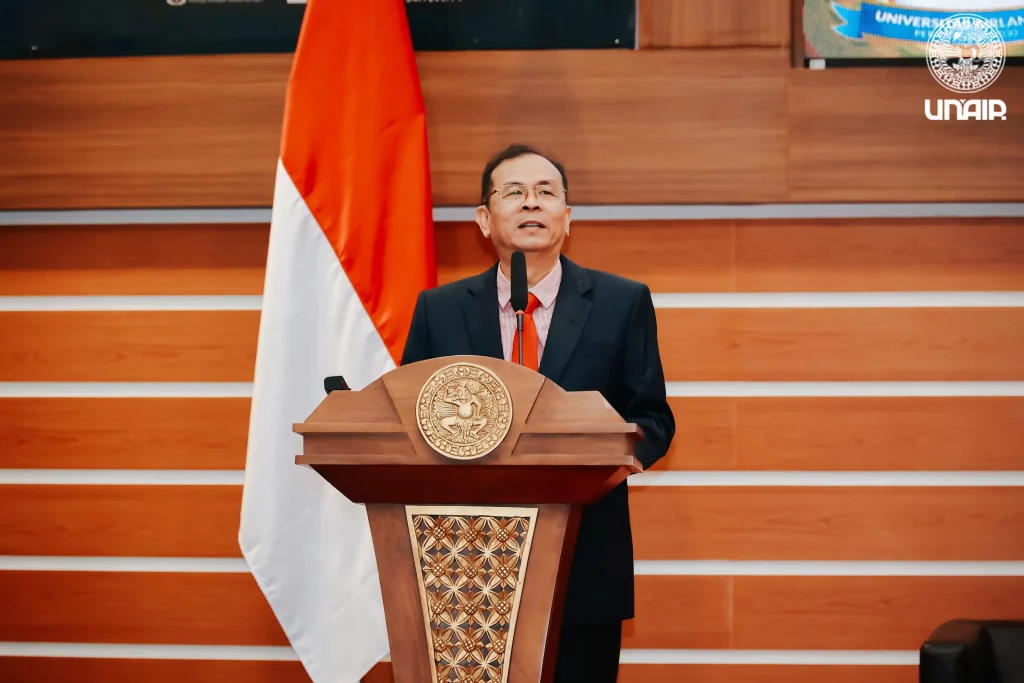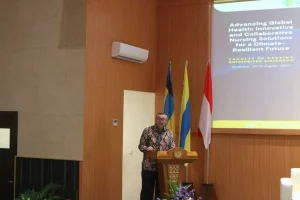UNAIR NEWS – Universitas Airlangga’s (UNAIR) impressive rise to 308th globally in the 2025 QS World University Rankings and second nationally in the 2025 QS Asia University Rankings is closely tied to the visionary leadership of Prof. Dr. Muhammad Madyan, SE, M.Si, M.Fin, Vice Rector for Resources. Over the past five years, Prof. Madyan has successfully established a solid foundation for transforming UNAIR into a world-class institution—excelling not only in academics but also in its adaptability to rapid global change.
From vision to reality
Prof. Madyan emphasized that UNAIR’s transformation is not just symbolic but rooted in actionable reforms—ranging from bureaucratic restructuring and system digitalization to human capital development. “Human resources are the core of any academic institution. Strategic planning and recruitment must address future challenges,” he stated.
In the past decade, the number of doctoral-level faculty at UNAIR has increased from 604 in 2016 to 1,000 by 2025. This growth reflects a sustained institutional commitment to training, research output, and community engagement. At the same time, faculty welfare has improved through performance-based incentives, functional allowances, and a more supportive work environment.
Turning challenges into opportunities
Prof. Madyan has also led a full-scale bureaucratic reform. Initiatives such as an integrated academic information system, a digital HR platform (Simpeg), and streamlined administrative procedures have significantly improved institutional efficiency.
“We believe bureaucratic efficiency isn’t just about speeding up processes, but about clarifying direction and accelerating results,” Prof. Madyan explained.
Research acceleration and a sustained vision
One of UNAIR’s standout achievements has been the surge in research output, positioning it as the Indonesian university with the most Scopus-indexed journals—currently totaling 19. Additionally, UNAIR’s Key Performance Indicator (IKU) on faculty involvement beyond campus (IKU 3) has increased to 61.52%, well above the national benchmark.
In the midst of global shifts, UNAIR’s progress under Prof. Madyan underscores a deeper purpose beyond rankings. With a focus on technology, integrity, and continual improvement, the university is evolving into a cornerstone of modern civilization. “UNAIR isn’t just a place for learning; it’s a place for building the future,” Prof. Madyan affirmed—a philosophy that continues to shape the university’s direction.
Author: Sintya Alfafa
Editor: Yulia Rohmawati









